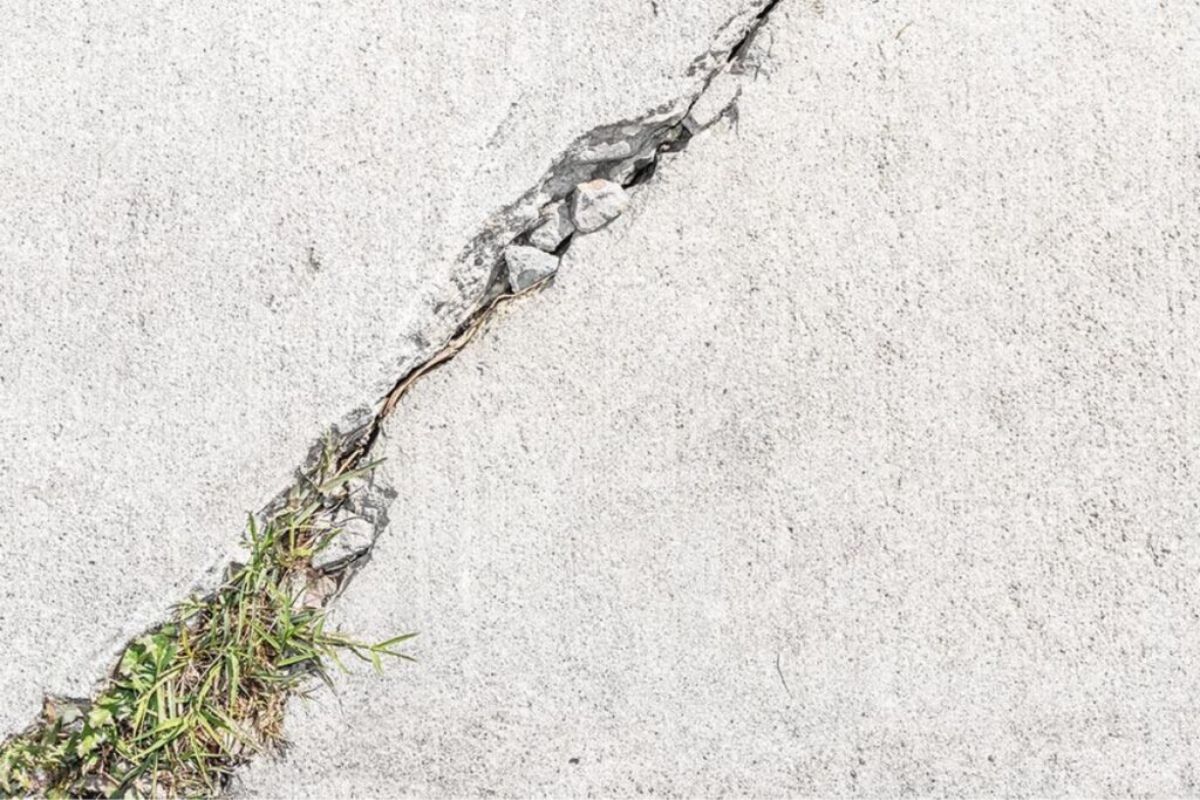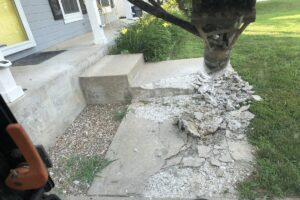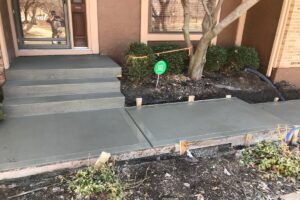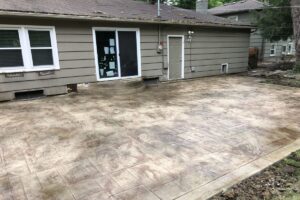There are a few different types of concrete cracks you may notice forming on damaged concrete outdoors. This runs the gamut of everything from heaving and expansion to settling and crushing. Alas, there are many ways for concrete to deteriorate despite the best intentions as property owners.
Johnson Concrete wants to explain these problems and share a few options for resolving them without having to spend a small fortune.
Common Types of Concrete Cracks
These are the most concrete cracks you might notice on your driveway, patio, sidewalk, or even garage floor.
- Heaves
- Heaving can lift your concrete higher and shatter it into several pieces. This is among the worst damage you’ll find on old sidewalks and other areas. Sometimes the sidewalk will fracture into large pieces and come loose. Most of this problem emanates from the clay soil underneath, which will freeze and thaw repeatedly, wreaking havoc on the concrete.
- Premature Drying Cracks
- These are the more subtle, thin, “spider web” cracks, which occur if you let concrete dry too fast. You can avoid this by paying close attention to the outdoor temperature while mixing and paving concrete. It’s also important to note that spider web cracks can also actually be the sealer and not the concrete. It’s nothing structural, just cosmetic.
- Crushing/Sinking
- Concrete sinking can come from soil movement as well, but we also see this when the concrete takes a beating from overloading or water pooling. You might see this on concrete that has to endure the weight of heavy construction equipment or multiple parked vehicles every day.
Other Concrete Problems You May Encounter
Of course, cracks aren’t the only issue that could ruin the concrete around your residential or commercial property. It can also “spall” or chip away at the substrate level, leaving a similar mess. Another thing that causes concrete to deteriorate prematurely is the over-use of salt substances, when folks use them to address ice accumulation on driveways.
Then there’s the multitude of ways to stain or discolor pavement. Motor oil and chemical spills (especially at industrial sites) may become permanent if you don’t clean them fast enough. Concrete patios can fade or turn green from algae, which is why it’s smart for homeowners to pressure wash those areas at least once a year.
Select a Reliable Contractor for Repair Solutions
In our older post on asking your concrete contractor the right questions, we put a strong emphasis on only letting a professional make repairs on concrete surfaces. That’s because if you hire the wrong concrete company, you’ll lament the subpar results they deliver.
Some contractors will use shortcuts while paving new sidewalks or patios, which may do the trick in the short run, but fall apart later. We always recommend sticking to reputable concrete businesses, like Johnson Concrete, who have plenty of positive customer reviews.
Johnson Concrete Can Fix All Types of Concrete Cracks
Where can you find solutions to heaves, expansion, overloading, and other concrete perils?
In Kansas City, Johnson Concrete is the best contract company for repair and replacement services. We train our paving technicians the techniques to avoid those calamities, giving you the best opportunity to enjoy crackless concrete for many years.
Our company holds an A+ accreditation with the Better Business Bureau (BBB). We also earn several 5-star ratings from satisfied clients around KC.
If you have other questions about the types of concrete cracks, or think you already have these problems, then please contact Johnson Concrete for assistance in Kansas City.




